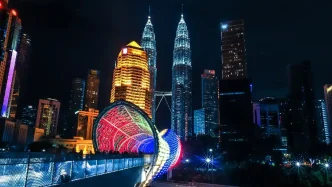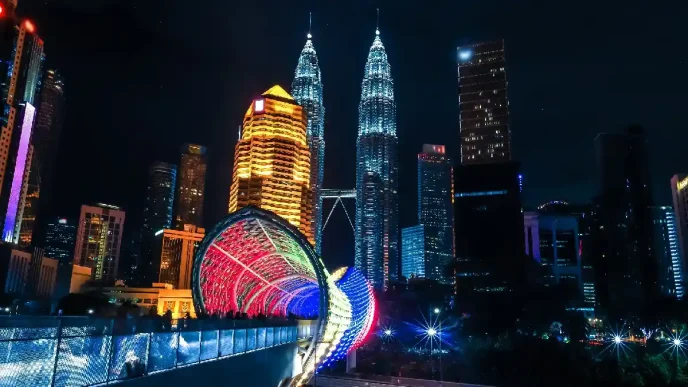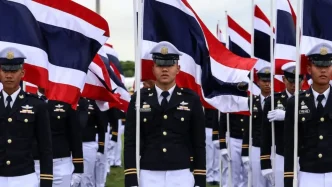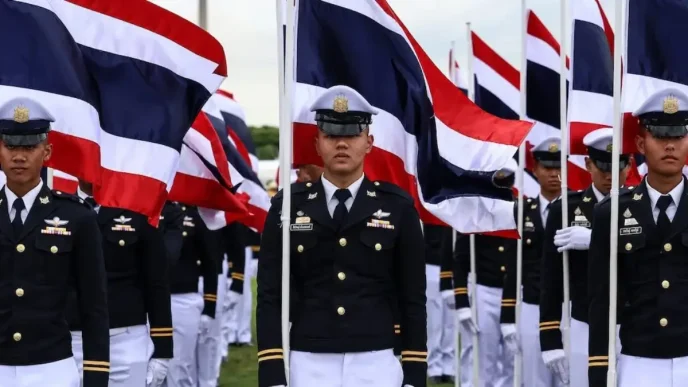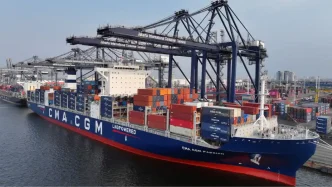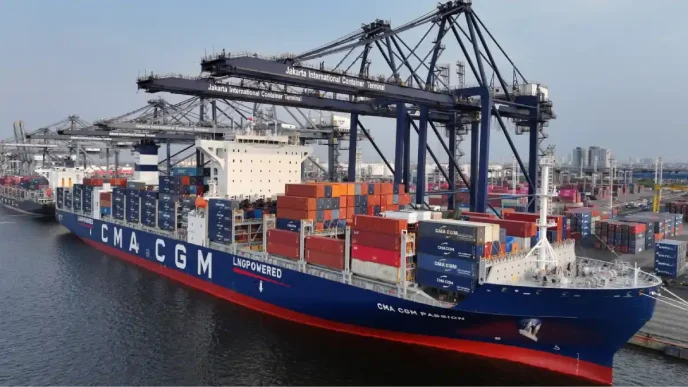Thailand is set to become the new home of Tomorrowland, one of the world’s most iconic electronic dance music festivals, for the next five years, following a landmark agreement approved by the Thai Cabinet. This development, alongside assurances from the Labour Ministry regarding the fair treatment of Cambodian workers in the country, signals Thailand’s ambitious push to bolster its tourism sector and reinforce its image as a global cultural hub.
A Milestone for Thai Tourism
The Thai Cabinet has officially greenlit a proposal to host Tomorrowland, a festival that draws hundreds of thousands of music enthusiasts from across the globe each year. Known for its elaborate stage designs, immersive experiences, and star-studded lineups, Tomorrowland has been a cultural phenomenon since its inception in Belgium in 2005. The decision to bring the festival to Thailand marks a significant milestone in the country’s efforts to diversify its tourism offerings beyond traditional beach holidays and historical sites.
The agreement, which spans five years, is expected to inject substantial revenue into the Thai economy. While exact figures remain undisclosed, industry experts suggest that the festival could attract tens of thousands of international visitors annually, boosting local businesses in hospitality, transportation, and retail. The Tourism Authority of Thailand (TAT) has long sought to position the country as a destination for world-class events, and hosting Tomorrowland aligns perfectly with this vision. The event is anticipated to be held in a yet-to-be-confirmed location, with speculation pointing to areas near Bangkok or popular tourist hubs like Phuket or Chiang Mai due to their infrastructure and accessibility.
This move comes as Thailand continues to recover from the economic fallout of the COVID-19 pandemic, which severely impacted its tourism-driven economy. In 2019, the country welcomed nearly 40 million international visitors, contributing billions of dollars to GDP. By hosting high-profile events like Tomorrowland, the government hopes to accelerate this recovery and surpass pre-pandemic tourist numbers. The festival’s global fanbase, particularly from Europe, North America, and Asia, offers a unique opportunity to showcase Thailand’s hospitality and cultural richness to a younger, affluent demographic.
Economic Implications and Regional Competition
The economic potential of hosting Tomorrowland cannot be overstated. Major music festivals often generate significant direct and indirect revenue for host countries. For instance, events of this scale can lead to job creation in event management, security, and logistics, while also driving demand for accommodations and local services. Thai officials are likely banking on a multiplier effect, where visitor spending ripples through the economy, benefiting small businesses and vendors far beyond the festival grounds.
Moreover, Thailand’s decision to secure Tomorrowland for five years positions it ahead of regional competitors like Singapore and Malaysia, both of which have invested heavily in hosting international events to attract tourists. Singapore, for example, has successfully hosted the Formula 1 Grand Prix, while Malaysia has staged concerts by global artists. By securing Tomorrowland, Thailand not only diversifies its event portfolio but also carves out a niche in the lucrative music tourism market. This could prompt a ripple effect, encouraging other international festivals and events to consider Thailand as a viable host.
However, challenges remain. Organizing an event of Tomorrowland’s magnitude requires robust infrastructure, stringent safety measures, and effective crowd management—areas where Thailand has faced criticism in the past during large-scale events. Environmental concerns also loom large, as festivals often generate significant waste and strain local resources. Thai authorities will need to balance economic gains with sustainable practices to ensure the event’s long-term viability and minimal ecological impact.
Labour Protections Amidst Tourism Push
In parallel to the Tomorrowland announcement, Thailand’s Labour Ministry has addressed concerns over the treatment of migrant workers, particularly those from Cambodia, who play a vital role in the country’s construction and service sectors. The ministry recently confirmed that no evidence of abuse has been found among Cambodian workers in Thailand, responding to earlier reports that raised alarms about exploitation and poor working conditions.
This assurance is critical as Thailand ramps up preparations for events like Tomorrowland, which will likely rely on a significant labor force for infrastructure setup, event operations, and ancillary services. Migrant workers, many of whom come from neighboring countries like Cambodia, Laos, and Myanmar, form the backbone of Thailand’s tourism and construction industries. Ensuring their fair treatment is not only a moral imperative but also a strategic one, as negative publicity around labor practices could tarnish the country’s image just as it seeks to attract global attention through initiatives like hosting Tomorrowland.
The Labour Ministry’s statement emphasized ongoing monitoring and collaboration with Cambodian authorities to safeguard workers’ rights. While specific details on enforcement mechanisms were not provided, the ministry’s proactive communication suggests an awareness of the international scrutiny that often accompanies high-profile events. Thailand has faced criticism in the past over labor issues, particularly in industries tied to tourism and export, making this a pivotal moment to demonstrate commitment to ethical standards.
Cultural and Social Dimensions
Beyond economics, hosting Tomorrowland offers Thailand a platform to showcase its cultural vibrancy to a global audience. The festival is renowned for its thematic storytelling and celebration of unity through music, themes that resonate with Thailand’s own traditions of community and festivity. Organizers may integrate elements of Thai culture—such as traditional dance, cuisine, or visual motifs—into the festival’s design, creating a unique fusion that could leave a lasting impression on attendees.
Yet, there are potential cultural tensions to navigate. Tomorrowland’s association with electronic music, late-night events, and liberal festival culture may clash with conservative values held by some segments of Thai society. While urban centers like Bangkok are accustomed to international influences, rural communities or traditionalist groups might view the event with skepticism. The government and organizers will need to engage local stakeholders to ensure the festival is perceived as an inclusive celebration rather than an imposition of foreign values.
Additionally, the influx of international visitors could strain local communities if not managed carefully. Past experiences with overtourism in places like Phuket and Koh Samui highlight the importance of balancing visitor numbers with the well-being of residents. Thai authorities might consider implementing measures such as capped ticket sales for certain areas or community benefit programs funded by festival proceeds to mitigate these risks.
Looking Ahead: A New Chapter for Thailand
As Thailand prepares to welcome Tomorrowland, the nation stands at the cusp of a transformative opportunity. If executed well, the festival could redefine Thailand’s global image, positioning it as a leader in cultural and entertainment tourism. The economic benefits—coupled with the chance to highlight Thai hospitality and creativity—make this a venture worth pursuing, provided the associated challenges are addressed with foresight and care.
At the same time, the Labour Ministry’s focus on migrant worker protections underscores the broader context in which this tourism push occurs. Thailand’s success on the world stage will depend not only on its ability to host spectacular events but also on its commitment to fairness and sustainability. As the countdown to Tomorrowland begins, all eyes will be on how Thailand rises to meet these dual imperatives, potentially setting a benchmark for other Southeast Asian nations to follow.









